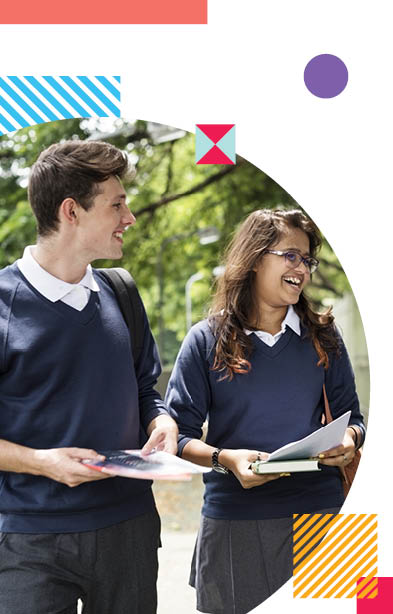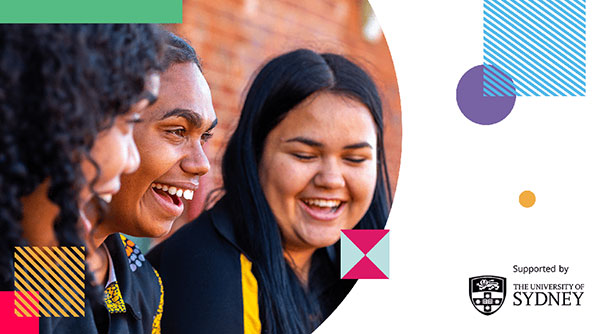
Janison and the University of Sydney share a fundamental belief in education for all and a desire to unlock every student’s potential.
Supported by the University of Sydney, Janison and ICAS Assessments are pleased to launch a program to provide schools in low socioeconomic, outer regional, remote, very remote and Indigenous communities of NSW with data-led insights that allow educators to tailor teaching practices and drive improvements in student learning outcomes.
Our purpose is to unlock the potential in every learner and that’s why, with the University’s support, we want to use our resources to help close the education gap between low socioeconomic, remote & rural and metro schools.
The Data-led Education Equity Program (DEEP) is a University of Sydney sponsored initiative that enables Janison to provide 5,000 free-of-charge Reach student benchmaking tests to schools in target communities within NSW, as well as a number of ICAS academic competition tests, over the next two years.
By extending the use of industry-leading student assessment tools to participating schools, DEEP aims to materially impact the goal of improving education through teaching best practices in view of confronting findings by the Productivity Commission that students outside major cities are on average 1.75 years behind in literacy and two years behind in numeracy compared with their urban peers.
By accessing Reach and ICAS assessments, teachers can assess full cohorts and instantly pinpoint where each student sits against learning objectives, quickly remedying gaps with evidence-based teaching practices.
Be one of the first schools to benefit from DEEP.

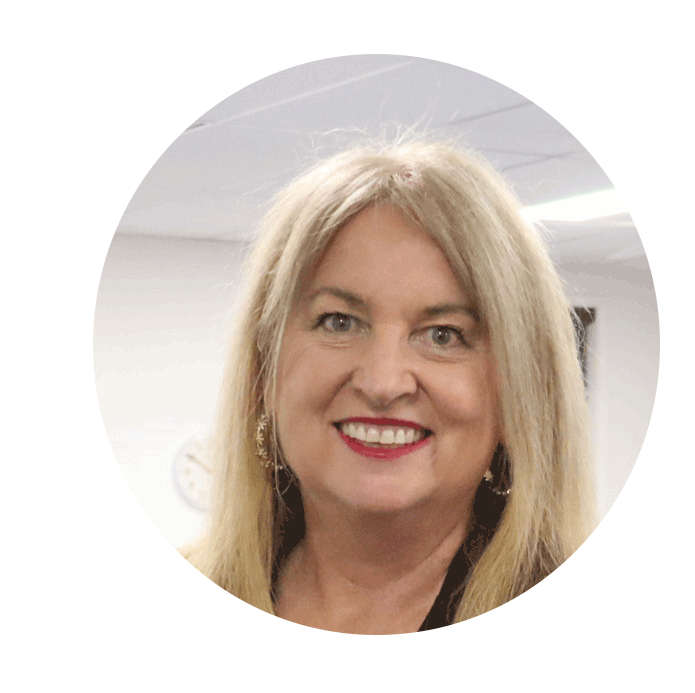
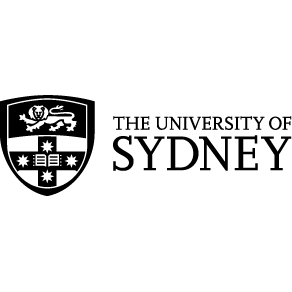
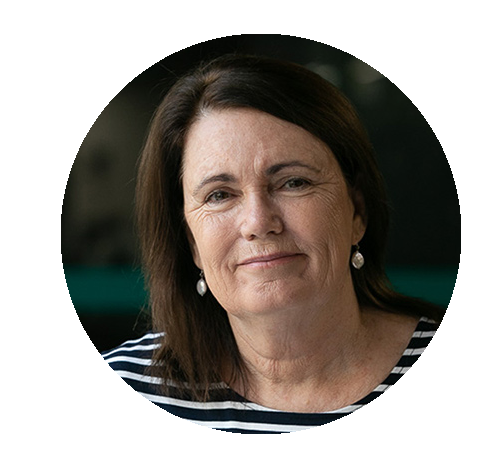
Considering enrolling your school in DEEP? Learn more about the program and how you can get involved.
DEEP stands for the Data-led Education Equity Program.
Supported by the University of Sydney, DEEP underpins efforts to bridge the education equity gap among schools by giving those in outer regional, remote, very remote, Indigenous and low socioeconomic communities free-of-charge access to Janison’s industry-leading student assessment tools, Reach and ICAS.
DEEP is designed for schools in outer regional, remote, very remote, Indigenous and low socioeconomic communities. Janison will initially take DEEP to schools in NSW to test the market and learn from their experiences, before later discussing a broadening of the scope.
Selection for DEEP is at the discretion of Janison and the University of Sydney.
If you do not meet the eligibility criteria, contact us to discuss your school’s specific requirements and we will tailor an assessment package to suit your needs.
To apply for DEEP, contact us at [email protected]
Janison and the University are funding up to 5,000 Reach assessments for students in eligible schools. Contact us to find out how many assessments you can access for your school.
Schools participating in DEEP can also nominate a select number of students to sit an ICAS assessment. If you have students who would like to participate in ICAS, contact us to discuss your requirements.
Yes. DEEP provides eligible schools with Reach and ICAS testing free-of-charge. However, if your school does not meet the DEEP selection criteria, you can still purchase Reach and/or ICAS assessments. Contact us to discuss your school’s specific requirements and we will tailor an assessment package to suit your needs.
For information about Reach pricing, click here.
For information about ICAS pricing, click here.
Schools that qualify for DEEP can administer Reach during the below testing windows:
| DEEP testing window | Closing date |
|---|---|
| 30 January – 28 March 2024 | 7 March 2024 |
| 2 April – 5 July 2024 | 7 June 2024 |
| 7 October – 29 November 2024 | 8 November 2024 |
Schools that miss the above closing dates will be able to sign up for the next available testing window.
Selected students can also sit ICAS between 5 August – 30 August 2024. Each ICAS subject is run across a 5-day sitting period within this testing window. The closing date for schools to sign up is 29 July 2024.
Schools participating in DEEP are subject to Janison’s Terms and Conditions.
Click here for full Terms and Conditions.
DEEP offers the below Reach subjects to schools:
| Year level |
English (core subject) |
Mathematics (core subject) |
Science (core subject) |
Grammar & Punctuation |
Spelling |
|---|---|---|---|---|---|
| Year 5 | |||||
| Year 6 | |||||
| Year 7 | |||||
| Year 8 | |||||
| Year 9 | |||||
| Year 10 |
| Year level | English | Mathematics | Science | Spelling Bee | Digital Technologies |
|---|---|---|---|---|---|
| Year 5 | |||||
| Year 6 | |||||
| Year 7 | |||||
| Year 8 | |||||
| Year 9 | |||||
| Year 10 | |||||
| Year 11 | |||||
| Year 12 |
The setup process for Reach and ICAS depends on the subject as well as how many students you are enrolling.
As a general rule of thumb, we recommend allowing a minimum of two weeks. However, if you need to set up your assessments within a shorter timeframe, please reach out to our assessment consultants at [email protected] who will be able to assist you.
The multi-faceted data insights derived from student assessment tools, like Reach and ICAS, can help to inform more effective teaching strategies, drive student engagement, unlock student potential and elevate learning.
By giving schools in outer regional, remote, very remote, Indigenous and low socioeconomic communities these tools in a program that carries no financial obligation, we hope to help level the playing field and drive equitable learning opportunities.
DEEP provides schools with Reach and ICAS assessments free-of-charge, which means it carries no financial risk.
Reach assessments allow teachers to assess full cohorts and easily pinpoint where each student sits against learning objectives. With these data-led insights, you can quickly identify areas of improvement for both students and teachers, and tailor teaching practices to suit your students’ needs. This can elevate learning and drive tangible school results while also reducing the administrative burden on teachers over time.
Participating in ICAS competitions can also help to challenge students, uncover untapped potential, boost confidence and open doors to further education and future opportunities.
All participating schools will receive login details for the results portal where they can access their online Reach and ICAS reports via a self-service dashboard. This interactive dashboard includes streamlined report documents to view and print as well as a series of student and school certificates.
The results portal provides in-depth analysis of learning through various lenses. Whether it’s analysing data at classroom, year and school levels, or drilling down and understanding an individual’s learning needs, the results dashboard can provide invaluable insights to inform more effective teaching practices and improve overall results.
Participating schools will also have access to our assessment consultants who can explain how to best use the dashboard and get the most out of their Reach and ICAS reports.
Reach is a suite of annual online benchmarking assessments available across four literacy and three STEM subjects. Reach assessments identify students’ strengths, weaknesses and progress across entire classes or year groups. By providing objective data on students’ progression year on year, Reach enables educators to tailor methods, improve class allocations and apply effective teaching practices at scale.
ICAS is a globally renowned competition that identifies and unlocks students’ potential while also celebrating academic achievements. Spanning several STEM and literacy subjects, ICAS assesses students’ ability to apply classroom learning to new contexts using higher-order thinking and problem-solving skills.
Reach assessments are designed to nurture students and maximise their potential. By pinpointing strengths as well as learning barriers and areas for improvement, teachers can adapt their style and delivery to suit their students’ needs. This in turn drives engagement, builds confidence and improves results.
Meanwhile, ICAS competitions boost confidence, challenge students, uncover untapped potential and celebrate academic achievements. Participation in highly regarded competitions like ICAS also stands out on a student’s CV and university applications, especially if they don’t yet have formal work experience. For younger students, it can also look great on applications for scholarships and entry into selective schools.
Participation in both Reach and ICAS can unlock doors to tertiary education and open up a world of opportunities for students.
Progression testing of students allows teachers to assess full cohorts, instantly pinpoint where each student sits against learning objectives, and quickly remedy any gaps with evidence-based teaching practices.
With the data-led insights from Reach and ICAS assessments, educators can apply effective teaching practices at scale. This boosts student results and, over time, alleviates some of the administrative burdens on teachers.
The assessments provided through DEEP (Reach and ICAS) aren’t based on remembering certain facts or information and therefore no ‘studying’ is required.
ICAS assessments generally test lateral thinking and problem-solving skills, but different subjects will require different preparation. Students can familiarise themselves with the ICAS format using ICAS past papers or RiSE+.
For useful tips check out this blog: How to prepare your students for ICAS: 7 tips for teachers, from teachers
You can access more information for teachers, parents and students via our support and resources page for Reach and support and resources page for ICAS.
Learn more about DEEP and find out how the program can have a positive impact on your child’s education.
DEEP is centred around the smart use of data to pinpoint strengths and identify development opportunities to focus improvement in student learning outcomes. By accessing these assessment services for free, your child’s school can get invaluable data on students’ strengths, weaknesses and progression, which will allow them to tailor teaching practices to suit your child’s (and all students’) needs. This has the potential to elevate your child’s learning, inspire them to want more from their education and open doors to tertiary education.
DEEP is designed for schools in outer regional, remote, very remote, Indigenous and low socioeconomic communities. Janison will initially take DEEP to schools in NSW to test the market and learn from their experiences, before later discussing a broadening of the scope.
Selection for DEEP is at the discretion of Janison and the University of Sydney; however, schools that are not eligible can still access Janison’s full suite of student assessments.
If you’d like your child’s school to consider applying for DEEP, talk to your teacher or school principal. They can contact us at [email protected]
Reach assessments help teachers to better understand your child’s learning needs. They identify students’ strengths as well as any gaps in their learning. They also enable teachers to adapt their teaching strategies to suit your child. This can improve results, boost confidence and potentially open doors to further education.
The advantage of accessing Reach assessments through DEEP is that they come at no cost to the school or parents.
ICAS assessments nurture students and celebrate academic excellence. They can unlock your child’s potential and boost their confidence by helping them to spot strengths and skills they didn’t know existed. ICAS is a prestigious, globally renowned competition that looks great on their CV as well as future university applications.
The advantage of enrolling a child in ICAS through DEEP is that it comes at no cost to the school or parents.
DEEP provides eligible schools with Reach and ICAS assessments free-of-charge.
The DEEP program is funding Reach assessments for up to 5,000 students in schools from regional, remote, very remote, Indigenous and low socioeconomic communities. Participating schools can also nominate a select number of students to sit ICAS assessments free-of-charge.
The assessments provided through DEEP (Reach and ICAS) aren’t based on remembering certain facts or information and therefore no ‘studying’ is required. Encouraging healthy habits such as getting enough sleep, exercising and eating healthy foods leading up to the assessment is a good foundation for preparation.
ICAS assessments generally test lateral thinking and problem-solving skills, but different subjects will require different preparation. You can practice some skills at home as well as familiarise your child with the ICAS format using ICAS past papers or RiSE+.
For more information on how to help your child prepare for ICAS, check out these blogs:
ICAS practice: 6 proven methods to help your child succeed
How do I help my child prepare for ICAS? Teachers’ tips for parents
You can access more useful information via our support and resources page for Reach and support and resources page for ICAS.
Reach and ICAS are not pass-fail assessments or connected to NAPLAN or the HSC.
Instead, they are tools that empower teachers to identify strengths, celebrate successes, spot learning gaps and tailor students’ learning to achieve educational goals, faster. There are therefore no risks to participating in Reach or ICAS – only benefits.
No. Reach and ICAS are not legally mandatory. However, if your school chooses to run Reach assessments, they may ask the entire class or year group to participate. If you are unsure whether you want your child to sit a Reach assessment, talk to your school or teacher.
It’s natural to be a little bit nervous before an assessment. If your child is stressed or anxious, remind them that they cannot fail a Reach or ICAS assessment. It is simply a low-stakes tool to help recognise their strengths and spot the things they might need a little more help with.
It is not possible to fail a Reach and ICAS assessment. The purpose of Reach is to identify strengths and weaknesses, benchmark students and monitor their progression. Meanwhile, ICAS is designed to identify strengths and unlock student potential while also celebrating academic achievements.
ICAS results rank students based on their percentile in each year level. Scoring highly means that your child has outperformed most other students in their year group and region. In some cases, when students perform exceptionally well, they are awarded an ICAS medal and are invited to participate in our medal celebration.
If your child has scored highly in their ICAS assessment, talk to their teacher about the next steps. They will be able to help you to explore future learning paths and potential career prospects based on their strengths.
Smart is a subjective term that can be applied in a variety of ways. There are also many different areas and subjects your child could potentially study at university, and some may require skills and attributes that your child is yet to uncover.
Reach and ICAS are designed to identify strengths and weaknesses and improve learning outcomes. By participating in Reach or ICAS, you can identify areas of strength that can inform your child’s future learning choices. Good results in ICAS also look great on their CV and future university applications.
If your child is interested in attending university, talk to their teacher about their options. For example, your child may be eligible for scholarships or financial assistance. The University of Sydney offers $105 million in scholarships and prizes every year. For more information and details about the University’s eligibility criteria, check out their scholarships page.
The Educator – April 26, 2023
Regional, rural, and remote schools across Australia face a range of daunting challenges that impact on the students living and learning in these communities.
The Educator – April 21, 2023
Thanks to sponsorship from the University of Sydney, major edtech provider Janison can now extend the ‘Data-led Education Equity Program’ (DEEP) to provide 5,000 student benchmarking tests for schools in target communities across NSW…
Keeping News Local – April 16, 2023
Janison, an Australian technology business, in collaboration with the University of Sydney, has developed the Data-led Education Equity Program (DEEP). This program aims to identify and unlock the untapped potential in students from outer regional, remote, very remote, Indigenous, and low socioeconomic communities…
Education Today – April 5, 2023
Students outside major cities are on average 1.75 years behind in literacy and two years behind in numeracy compared with their urban peers. The phenomenon is persistent but pinning down what needs to be done to improve the situation has yet to be fully resolved.
The University of Sydney – April 5, 2023
The University of Sydney is supporting edtech provider Janison to deliver 5000 free student benchmarking tests to regional, remote and Indigenous schools over the next two years.
National Indigenous Times – March 31, 2023
Indigenous school students in New South Wales will be granted access to free benchmarking tests in a move designed to provide education equity between schools.
March 29, 2023
Janison will deliver 5,000 free-of-charge student benchmarking tests to schools in target communities over the next two years thanks to support from the University of Sydney.
Australia toll-free: 1800 931 775
New Zealand toll-free: 0800 440 904
International: +61 2 5565 2217
Australia toll-free: 1800 931 775
New Zealand toll-free: 0800 440 904
International: +61 2 5565 2217
© ICAS Assessments. Powered by Janison. All rights reserved.
